Challenge the Horizon Pacific Research Symposium
This symposium is an annual event that showcases Pacific research, researchers and research excellence at the University of Waikato.
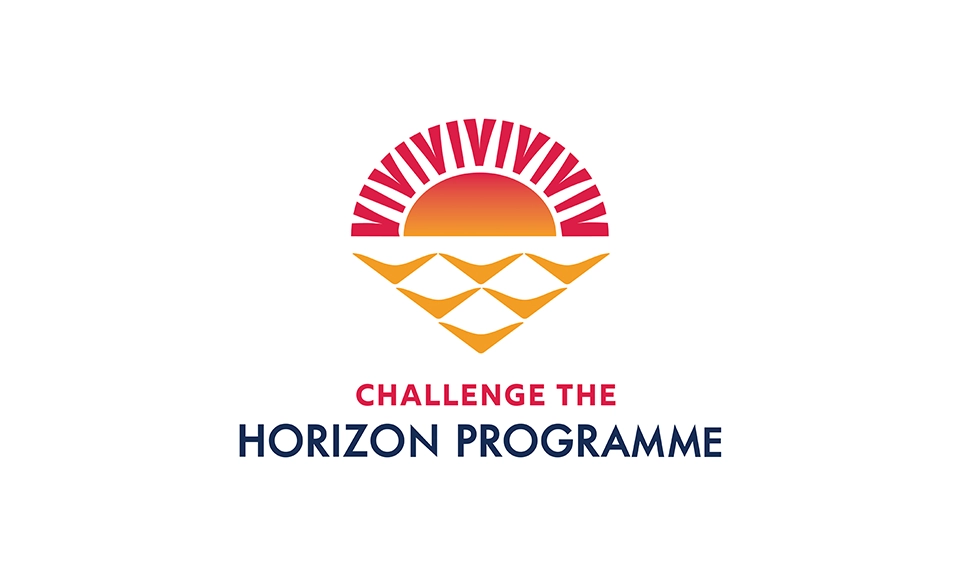
6th Annual Challenge the Horizon Pacific Research Symposium
Hear from University of Waikato Pacific higher learners and staff as they discuss the important research impacting our Pacific communities.
27th September 2024, 1:30 - 6pm NZST
Theme 1: Changing Storytelling about Pacific People
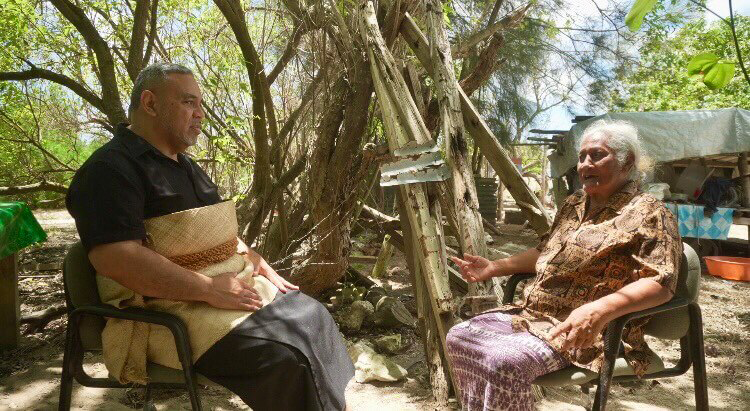
Our talanoa in Kāinga Nukunukumotu, Tonga. Rising Stories, Mana Pacific Consultants. Photo Credit: Joshua Savieti
Black Power on Campus: The University of Papua New Guinea and the Rise of Pacific Literature
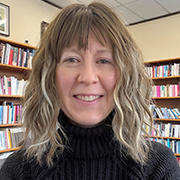
Dr. Maebh Long – Senior Lecturer in English & Writing Studies, School of Arts.
In the 1960s and 1970s, the staff and students of two newly founded universities in the Pacific Islands helped foster a golden age of Oceanian literature. At the University of Papua New Guinea and the University of the South Pacific, bold experiments in curriculum design recentered literary studies around a Pacific modernity. At UPNG this change in curriculum was matched by a vibrant Black Power group who blended political activism with creative writing. My talk reveals the connections between the Niuginian Black Power movement at UPNG and the burst of literary creativity that strove to write a modern, independent Niugini into being.
Divergent Secularities in the Ra Christian State sedition trial in Fiji in 2017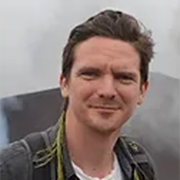
Dr. Thomas (Tom) White – Teaching Fellow, History, ALPS
In 2014, seventeen Indigenous Fijian elders from Ra Province – retired civil servants, teachers, pastors, chiefs, engineers and nurses – together proclaimed their secession from the Fijian state. From Fiji’s historically ‘rebellious’ interior, the group renounced Fiji’s ‘secular state’ 2013 Constitution, anointed cabinet ministers with oil, and signed documents declaring Ra as a separate and sovereign Christian state. Copies were then sent to the International Criminal Court, the UN and the Queen of England. The secessionists claimed the 2013 constitutional reforms imposed by Fiji’s Prime Minister and 2006 coup-leader, Commodore Bainimarama, threatened Indigenous Fijians with ‘cultural genocide.’ Upon hearing of the separatists – along with their sister movement in Nadroga-Navosa – Bainimarama declared ‘they are enemies of the state and enemies of the Fijian people... we are going to track them down and bring them to justice!’ Drawing on personal observations of the Ra elders’ prosecution for sedition in Fiji’s High Court in 2017, this paper explains how the final judgement hinged on the semantic indeterminacies of Christian nationalism and secularism in Fiji. The paper then concludes by considering how pre-Contact conceptual oppositions, such as that between ‘land’ and ‘sea’ may contour Fijians’ different receptions of the religion/secular dual in Fijian law and society.
Whose Sea of Islands? Colonialism, Aqua Nullius, and Oceanian Water Relationality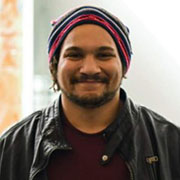
Dr. Nathan Rew – Lecturer, Te Pua Wananga ki te Ao, Faculty of Māori and Indigenous Studies.
This paper introduces the legal and philosophical framework of aqua nullius as an implicit but key logic in the Doctrine of Discovery. Building on the works of Ruru and Miller (2022) this paper proposes an 11th legal dimension to the Doctrine in the form of aqua nullius. Where aqua nullius is defined then as the fundamental logic by which colonial violence dispossesses Indigenous Oceanian peoples of our relationships to the ocean. In demonstrating how colonialism has come to frame the oceans as an extra-legal space, this paper explores first, the consequences of this logic and how it links our struggles, before asking what it might take for us to challenge, rupture, and overcome these colonial discourses in the struggle for a new Oceania. Ultimately, this paper asks us to interrogate what it might means to be a Sea of Islands, what might we have to overcome, and how we might begin to do enact these ways of relating to each other and our shared ocean.
The Cross-cultural Application of Laws: Examples from the Pacific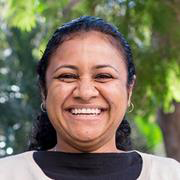
Dr. Unaisi Narawa– Lecturer, Te Piringa, Faculty of Law.
Contemporary national legal systems should never be presumed to be the prototype of law, especially in the case of Pacific jurisdictions. Legal pluralism is understood to be the co-existence of state law and customary law, and in some cases religious law. Literature thus far has focused on the application of that customary law to the particular group of people who created it. What is rarely explored is the cross-cultural application of those laws. This paper examines how the customary laws of one Indigenous group can be applied to another group of people, Indigenous or not Indigenous. This will be demonstrated with case examples from Fiji and Solomon Islands.
Theme 2: Engaging Pacific Knowledge and Knowledge Holders
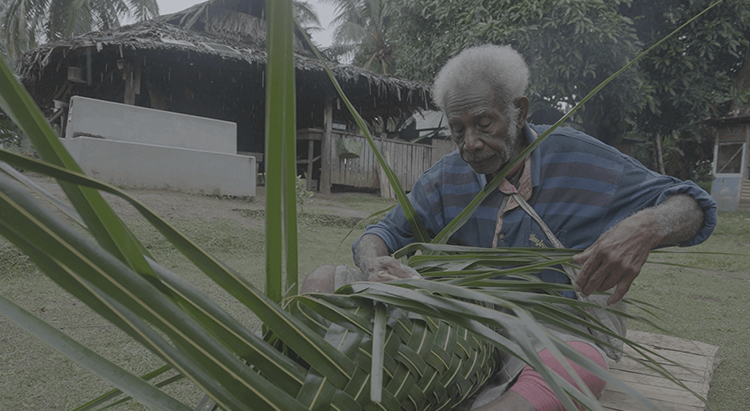
Weaving basket in Yaga Village, PNG. Rising Stories, Mana Pacific Consultants. Photo Credit: B. Keket Films
Beyond the Stitch: Reimagining Tivaevae in Digital Spaces
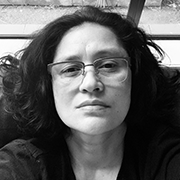
Bonnie Elizabeth Kea – Doctoral Candidate, Te Pua Wananga ki te Ao, Faculty of Māori and Indigenous Studies.
This research explores the traditional practices and cultural values embedded in Cook Islands’ tivaevae, a cherished art form. It aims to understand how these practices can be adapted and preserved within digital spaces to support and sustain the identity formation of Cook Islanders living in diaspora. By examining how tivaevae can be reimagined online, the study seeks to uncover ways to maintain and transmit cultural heritage across geographical boundaries, ensuring that Cook Islanders abroad continue to connect with their identity and cultural roots. This work highlights the potential for digital platforms to play a crucial role in cultural preservation and continuity.
Weaving Science and Culture: Using Indigenous Knowledge in the Fight Against Superbugs
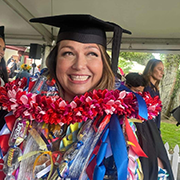
Jessica (Jess) Eva Usu – Master of Science Candidate in Molecular and Cellular Biology, School of Science.
Antimicrobial resistance (AMR) is a global health crisis that disproportionately affects Pacific communities. My research blends conventional scientific methods with Pacific research methodologies to address this issue. By integrating Indigenous Samoan knowledge and concepts like teu le va and fa'afaletui, we explore novel strategies to combat AMR in Acinetobacter baumannii. This approach not only enhances our scientific understanding but also empowers communities, ensuring that solutions are culturally relevant and sustainable. My findings demonstrate that these methodologies are not mutually exclusive but rather complementary, creating a more holistic and effective approach to tackling AMR. This weaving of science and culture has the potential for sustainable, community-centered outcomes that resonate deeply within the Pacific context.
Empowering Tongan Type 2 Diabetes Patients: Weaving Technology and Culturally Tailored Support to Foster Better Self-Management
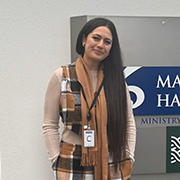
Janina’ofa Tangataevaha Galewski – Doctoral Candidate, Division of Health.
In Aotearoa New Zealand, there is an increasing prevalence of type 2 diabetes among Tongan communities when compared to the general population. While continuous monitoring devices [CGM] have demonstrated potential in improving diabetes management, limited accessibility and high costs create barriers for those high-risk patients. There is a need for more accessible and culturally sensitive interventions to facilitate prospective changes with patient engagement and self-management. This thesis, although currently in the data collection phase, explores the use of CGM and culturally appropriate wrap-around support to improve self-management in Tongan adults with type 2 diabetes. This study is underpinned by Pacific research methodology Talanoa, which is rooted with respectful dialogue, fostering relationships and shared understanding to draw out culturally rich insights. The study design includes quantitative data from CGM devices and qualitative interviews with patients. Research participants will be Tongan adults (n=20) over the age of 18 years with high HbA1c (<70 mmol/mol) and live in the Waikato region. Data analysis will be done using thematic coding and SPSS. Improvements in glycemic control and increased patient engagement are anticipated outcomes of the integration of biofeedback technology and culturally appropriate support services.
Culturally Responsible & Contextually Responsive Research in the Pacific
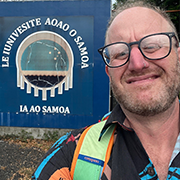
Benjamin (Ben) Levy– Doctoral Candidate, Te Kura Toi Tangata, School of Education.
Non-indigenous/non-Pacific researchers in the Pacific must embrace how participants share knowledge, what it means to honour, (re)present and sensemake relational positionality in ethical, values-based, mana-enhancing and nuanced spaces. Being mindful of the ‘spaces’ shaping one’s positionality and how they occupy spaces are critical, ongoing negotiations. They must confront their otherness to actively navigate how participants make meaning of relationality with the researcher. It is important to constantly recognise and acknowledge biases through ongoing, diligent reflexivity and explore the tensions of privilege, contexts, cultures and their positionalit(ies) within relational research spaces. Researcher positionality is contextual and relational and must be continuously interrogated by the researcher and participants. Initial assumptions will be made while the relationship is developed. Through relational development, trust, reciprocity and humility are created, and relational positionality emerges. Pacific customs and relational ethics require researchers to clarify their place-space connections and philosophical and practical research approaches. To maximise research authenticity, it is critical to understand the contexts of the spaces, places and peoples. Removing inherent power and privileges is impossible, but ethical/responsible/responsive researchers strive to create balanced, non-colonising relationships. Researchers must honour their participants and approach academic scholarship as contextually responsive and responsible researchers.
Theme 3: Pacific People and Dynamic Responses to Climate Change
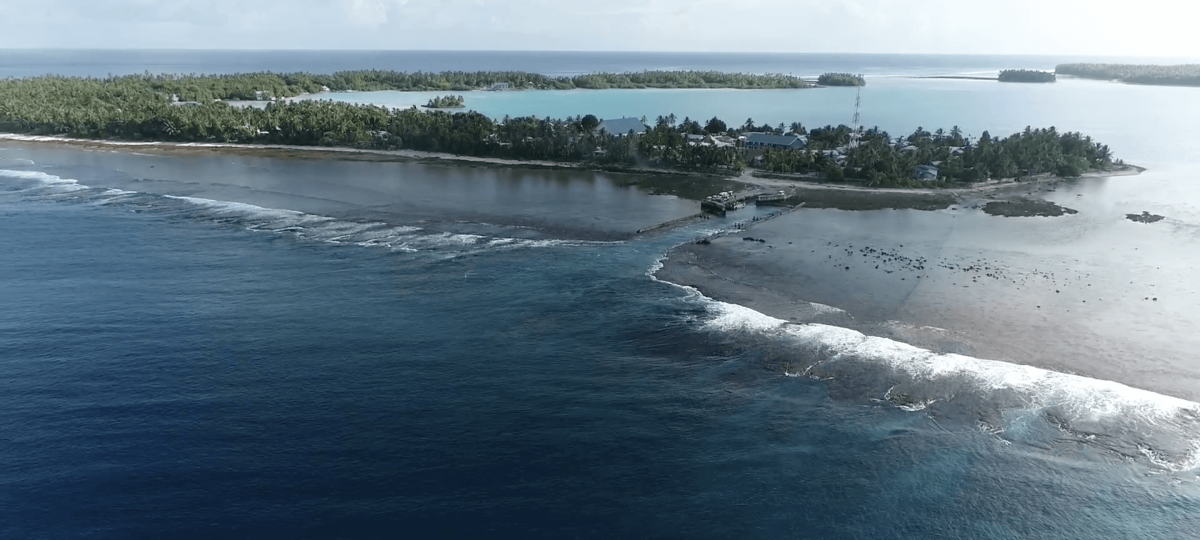
Sea intrusion in Atafu, Tokelau. Rising Stories, Mana Pacific Consultants. Photo Credit: Te Moamoa Atafu Media
“We are not drowning, we are fighting”: Visual storytelling by the Pacific Climate Warriors
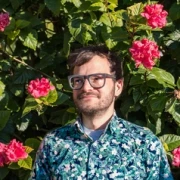
Associate Professor Olli Hellmann – Politics and International Relations, Te Kura Aronui, School of Social Sciences.
Western publics make sense of rising sea levels in the Pacific mainly through a narrative of vulnerability. This narrative understands the sinking of islands as inevitable and caused by the islands’ own geographical properties, thus reducing the role of local people to that of helpless victims. By applying methods of visual analysis to social media communication, my paper shows how the Pacific Climate Warriors – a youth-led grassroots network that connects various Pacific islands and diaspora communities – have developed a counter-narrative that challenges this dominant representation of climate change in the Pacific. Specifically, the analysis reveals that visual images shared on social media support counter-storytelling by employing events in a causal relationship (rising sea levels as a side effect of industrialisation), characterising the actors (the Global North as careless, Pacific islanders as caring and knowledgeable), and describing the setting (the Pacific Ocean as full of life and as a connector between peoples).
Navigating power dynamics in development: Analysing climate adaptation policies in the RMI
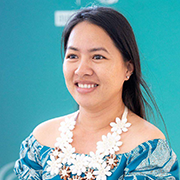
Yoshiko Yamaguchi – Master of Environment and Society Candidate, ALPPS
This research investigates how power dynamics between external and internal actors influence the effectiveness of World Bank participatory development policies within the climate adaptation sector in the Republic of the Marshall Islands (RMI). Utilizing a comprehensive qualitative methodology, the study incorporates a literature review, stakeholder mapping, semi-structured interviews, and a validation workshop to explore these dynamics. The findings are expected to illuminate the complexities of participatory practices, emphasizing the importance of inclusive and context-specific strategies that enhance the resilience and sustainability of climate adaptation initiatives in the RMI. The goal is to provide practical recommendations that align with the needs of the RMI, contributing to more effective and equitable climate adaptation policies.
Torsional Buckling Behavior of Cold-Formed Steel Trusses: Implications for Structural Integrity in Disaster-Prone Regions

Ulamila Rokocakau – Master of Engineering Candidate in Civil Engineering, STEM.
Cold-formed steel trusses are increasingly utilized in the construction industry due to their lightweight nature and cost-effectiveness. However, the structural behaviour of these trusses, particularly in response to torsional buckling, remains insufficiently understood. This study addresses this knowledge gap by investigating the torsional buckling behaviour of cold-formed steel trusses under varying load conditions through rigorous experimental testing. The research identifies key failure mechanisms and critical points that significantly influence truss performance under torsional stress, providing crucial insights into maintaining structural integrity in these systems. The findings of this research are particularly relevant to regions such as the Pacific, where the resilience and structural integrity of construction materials are critical due to the frequent occurrence of natural disasters. Traditional construction materials, such as timber and hot-rolled steel, often require extended restoration periods following such events, exacerbating the vulnerability of affected communities. By advancing the use of more resilient and cost-effective materials like cold-formed steel, this study contributes to the development of safer and more efficient construction practices. These practices are better suited to withstand the dynamic impacts of climate change, underscoring the necessity of integrating climate considerations into structural design and construction processes. The insights gained from this research not only enhance the understanding of cold-formed steel trusses but also promote the broader adoption of innovative materials that strengthen community resilience in disaster-prone areas.
A Clean Energy Plan for Samoa
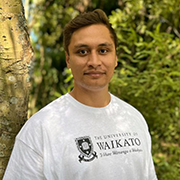
Fogamomi Nicc Moeono – Doctoral Candidate, Ahuora - Centre of Smart Energy Systems; Faculty of Engineering, STEM
In response to the adverse impacts of climate change, Pacific Small Island Developing States (PSIDS), including Samoa, have developed ambitious renewable energy targets, aiming to reduce GHG emissions while providing reliable and clean electricity to all. However, a significant research gap hinders the achievement of energy targets, curtailing PSIDS from identifying appropriate methods and concepts to developing a fit-for-purpose energy plan. To overcome this challenge, this research introduces a smart energy system, shifting from a singular sector towards an integrated multi-sectoral approach, focusing on Samoa. This research creates several energy scenarios to identify the most cost-effective, flexible, and robust pathway towards a sustainable future. The research will anticipate coupling the electricity and transport sectors as the first step towards an integrated energy system. The novelty of this research consists of constructing an energy scenario that utilizes a cultural framework and a bottom-up step-change plan that involves multiple sectors and energy system levels in Samoa. This research will provide a comprehensive energy plan for Samoa; however, the approach can be replicated across PSIDS, paving the way for integrated, sustainable, and holistic energy planning.